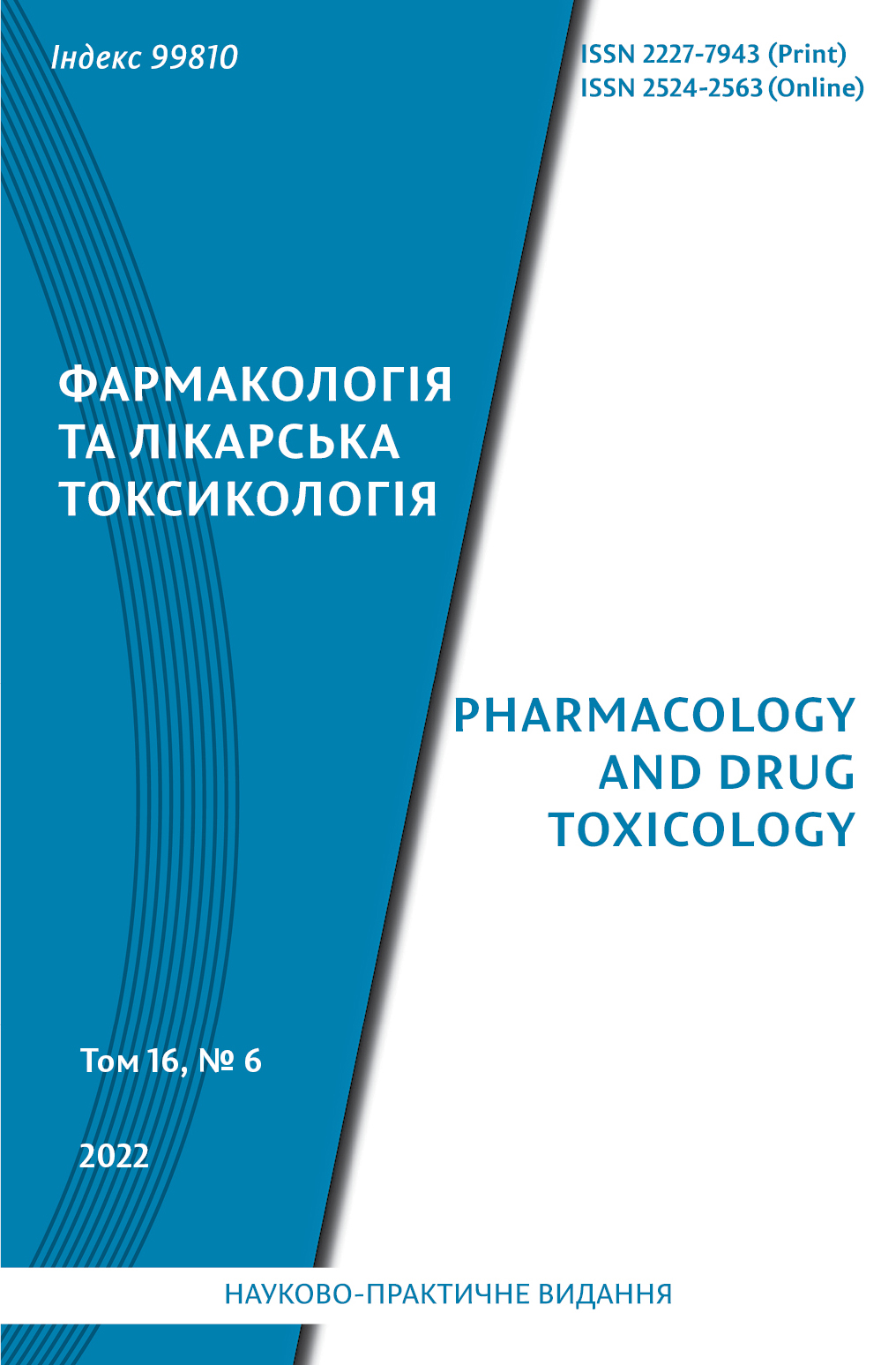Abstract
The aim of the study – to investigate the effect of modulators of hydrogen sulfide (H2S) metabolism (NaHS and propargylglycine (PPG) on metformin-induced changes in the functional state of the kidneys under experimental diabetes.
The study was performed on 75 white non-linear male rats with a body weight of 150–240 g. The animals were divided into five groups: group 1 – control; group 2 – animals with experimental diabetes, initiated by a single intraperitoneal injection of streptozotocin ( STZ, 40 mg/kg of weight) in 0.1 M citrate buffer (pH 4.5); group 3 – animals with experimental diabetes, treated with metformin (500 mg/kg/day, intragas- trically) from the 3rd to the 28th day; group 4 – animals with diabetes mellitus, which, along with metformin, were administered NaHS (56 μmol/kg/day, intragastrically); group 5 – animals with diabetes, which were administered PPG (442 μmol/kg/day, intragastrically) along with metformin.
Glucose level was assessed in peripheral blood, creatinine and aldosterone levels in blood serum, and creatinine, sodium, potassium, and protein content in urine. Creatinine clearance and relative water reab- sorption were calculated according to known formulas.
It was discovered that metformin use in STZ-diabetes caused an increase in the level of H2S in the kid- neys (by 27.9 %, p < 0.001), which was accompanied by a decrease in glomerular and tubular disorders (creatinine clearance increased by 13.1 %, p < 0.05, proteinuria decreased by 25.1 %, p < 0.001, an indica- tor of relative water reabsorption probably increased), a decrease in aldosterone level (by 18.1 %, p < 0.05) and an increase in urinary sodium excretion (by 18.6%, p < 0.05).
The administration of modulators of hydrogen sulfide metabolism modified the nephroprotective effect of metformin in STZ-diabetes. Thus, the administration of NaHS increased the corrective effect of metfor- min on kidney function – creatinine clearance increased (by 14.3 %, p < 0.01), proteinuria decreased (by 21.2 %, p < 0.05), and the level of aldosterone in the blood decreased (by 24.2 %, p < 0.001) and urinary sodium excretion increased (by 16.3 %, p < 0.05). In the meantime, PPG administration led to weakening of metformin nephroprotective activity – creatinine clearance and natriuresis decreased respectively by 11.1 and 16.9 %, p < 0.01, proteinuria and the level of aldosterone in the blood increased correspondingly by 13.6 and 18.0 %, p < 0.05.
Based on the results of the study, it was discovered that metformin nephroprotective activity is medi- ated through the effect on the H2S signaling system, and the use of H2S donors potentiates the protective effect of metformin on the kidneys under experimental STZ-diabetes and is promising for further research.
